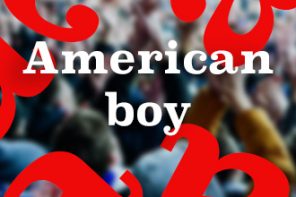To celebrate the 50th anniversary of England’s World Cup victory, we’re serialising the wonderfully comprehensive new book 1966 and Not All That throughout July. Published by Repeater Books, 1966 and Not All That includes contributions from award-winning writers David Goldblatt, Simon Kuper, Philippe Auclair and Amy Lawrence, among others. An exclusive discount code for readers of The Set Pieces can be obtained at the bottom of the article.
Note: All extracts are written in real-time, with match reports penned by journalists from each of England’s opposing countries.
Uruguay Team Background
Uruguay is the smallest country in South America but by 1966 the national team have already won two World Cups and two Olympic gold medals, as well as lifting the Copa América ten times. Only Argentina, with 12 victories, have conquered South America on more occasions. Brazil can boast just three Copa America trophies.
Uruguayan clubs have also been successful at domestic level. Peñarol have claimed three Copa Libertadores crowns and two Intercontinental Cups, the competition between the champions of South America and Europe. Shortly before the start of the 1966 World Cup, Peñarol crushed Real Madrid 4-0 over two legs. They have also just won their most recent Copa Libertadores, beating the mighty River Plate 4-2 after coming back from 2-0 down.
Qualifying for the 1966 World Cup has been very straightforward thanks to a large contingent from the immensely strong Peñarol line-up.
The Uruguayans are now in Harlow, where they have been given a warm welcome. They will face England for the fourth time in their opening game and so far in these contests they have the upper hand. In their first meeting in 1953, Uruguay won 2-1 in Montevideo. A year after they met again in Switzerland during the 1954 World Cup, with the South Americans cruising to a 4-2 victory. England’s only win against the Celeste came in a friendly at Wembley in 1964.
The Uruguayan team are staying at the Saxon Inn hotel and it is here that their coach, Ondino Viera, prepares his tactics for the first match against a strong English outfit.
In order to explain his instructions, Viera uses a table-tennis table to represent the Wembley pitch. On top of it he places 11 salt cellars to represent the Uruguayan footballers and 11 pepper cellars for the English. Salt must neutralise pepper, he orders. Viera moves the plastic salt cellars from side to side, looking at his players and repeating: “If you do this, the English will not beat us.”
Often evasive in front of journalists, Viera does not disclose his strategy to the press. Neither does he reveal which players will be starting in the upcoming match. “Our labour must be silent and dark,” he later confides to a reporter.
England v Uruguay Match Report, 11 July 1966
Kick-off: 19.30
Venue: Wembley Stadium
URU: Mazurkiewicz (GK), Troche (C), Manicera, Caetano, Ubiñas, Goncalves, Cortes, Rocha, Perez, Viera, Silva
ENG: Banks (GK), Cohen, Wilson, Charlton. J, Moore (C), Stiles, Ball, Charlton. R, Greaves, Connelly, Hunt
Attendance: 87,148
Final score: Uruguay 0 England 0
Finally the moment has come. The salt cellars enter the pitch to take on the pepper cellars. The Uruguayans are astonished when they see their rivals wearing silk shirts with Vaseline rubbed into their faces to prevent sweat getting in their eyes. They have never seen such sophisticated attire.
As the Wembley crowd roars on England, the Uruguayans try to focus on the game. “People outside the pitch are made of wood,” they tell themselves, remembering the advice of Obdulio Varela, captain of the Uruguayan team that clinched the 1950 World Cup in Brazil in a final dubbed ‘Maracanazo’ (pictured below).
Back home the whole of Uruguay tunes into the radio, with the match not due to be broadcast on Uruguayan TV until two days later.
The game starts. The hosts’ first attack immediately calls for goalkeeper Mazurkiewicz’s intervention. A series of English corners in quick succession is finally brought to a halt by “Mazurka” – as the Uruguayans call their No.1 – heroically claiming the ball.
A clear difference between the styles of each team is apparent from the start; Uruguay like to play slow, and England fast. Mazurkiewicz always uses his hands to distribute the ball to a team-mate’s feet. That is the strongest point of the salt cellars – their excellent technique.
They hardly miss a pass, but the English are playing faster than them. At times it seems like each team is playing a completely different sport.
Prior to the World Cup, Uruguay played a friendly against Spain that ended in a 1-1 draw. After the match, José Santamaría, the famous Spanish defender, was asked for his opinion of the Uruguayan team. “Technically, and as a whole, I found them awesome,” he answered. “But their game is horribly slow. It’s terrible. You just can’t carry on playing like that nowadays.”
This same issue is exposed at Wembley as Uruguay focus on defending their own half. In the 13th minute Milton Viera delights the English support with an elegant dribble. Three minutes later Rocha steals the ball right off the feet of an opponent and starts a fresh attack.
However, those brief moments of skill are undone by the speed of the British game and the Celeste are not able to get close enough to Banks’ goal to threaten. “Uruguay play at walking pace,” complains the BBC commentator. It’s 0-0 at half time.
Shortly after the restart, Caetano commits a heavy foul on Bobby Charlton, leading to some pushing and shoving between the two teams. A minute later Ubiña tackles another English player and the crowd boo the salt cellars.
Uruguay continue to hide in their own half, resisting the English attacks due to their organisation, willingness and strength. As Ubiña defends with an amazing bicycle kick, Wembley applauds his effort.
With 16 minutes of the second half gone something magical happens. Viera passes the ball to Rocha who controls it with his back to the English goal. Without stopping, he lifts the ball over the English defender as he turns and hits a ferocious volley that misses by just a few inches. It’s the best shot of the whole match.
England respond with their best weapon: fast and collective play. A succession of rapid passes daze the Uruguayan defence. It seems like an English goal is imminent, but Mazurkiewicz produces an astonishing save to deny Bobby Charlton.
With five minutes to go, England almost find a breakthrough when they hit the crossbar with a header. It has been a frustrating afternoon for the hosts and finally the referee whistles for full-time.
The Uruguayan team celebrate as if they have won. Some English players leave quickly for the dressing rooms without thanking the referee, the crowd or their opponents.
Back home in Uruguay people celebrate in the streets. The draw is received as a victory with El Diario running the headline: “Another great feat of the Celeste.” The article beneath tells of “a draw that tastes like victory against a mighty opponent…Cortés, Troche and Manicera performed brilliantly.”
Some years later defender Manicera will say in an interview that everything that happened at Wembley was exactly how the coach had planned it on top of the table-tennis table with the pepper and salt cellars. “Everything Don Ondino planned, happened,” said Manicera. “He was a genius, able to know what could happen in any match, and plan all moves of each single player in relationship to what the opponent would do.”
Finishing second in the group, Uruguay moved on to the quarter-finals where they were beaten 4-0 by Germany after being awarded two controversial red cards.
You can follow Leonardo Haberkorn on Twitter.
This is an edited extract from 1966 and Not All That published by Repeater Books.
This new book includes original writing on 1966 from contributors including David Goldblatt and Simon Kuper, an oral history of the tournament compiled by Amy Lawrence, and new thinking on what 1966 meant then and now. Just £8.99 from Philosophy Football there’s an exclusive £1 discount for The Set Pieces readers. To pick up your copy for £7.99, quote coupon code ‘The Set Pieces’ at the checkout.






